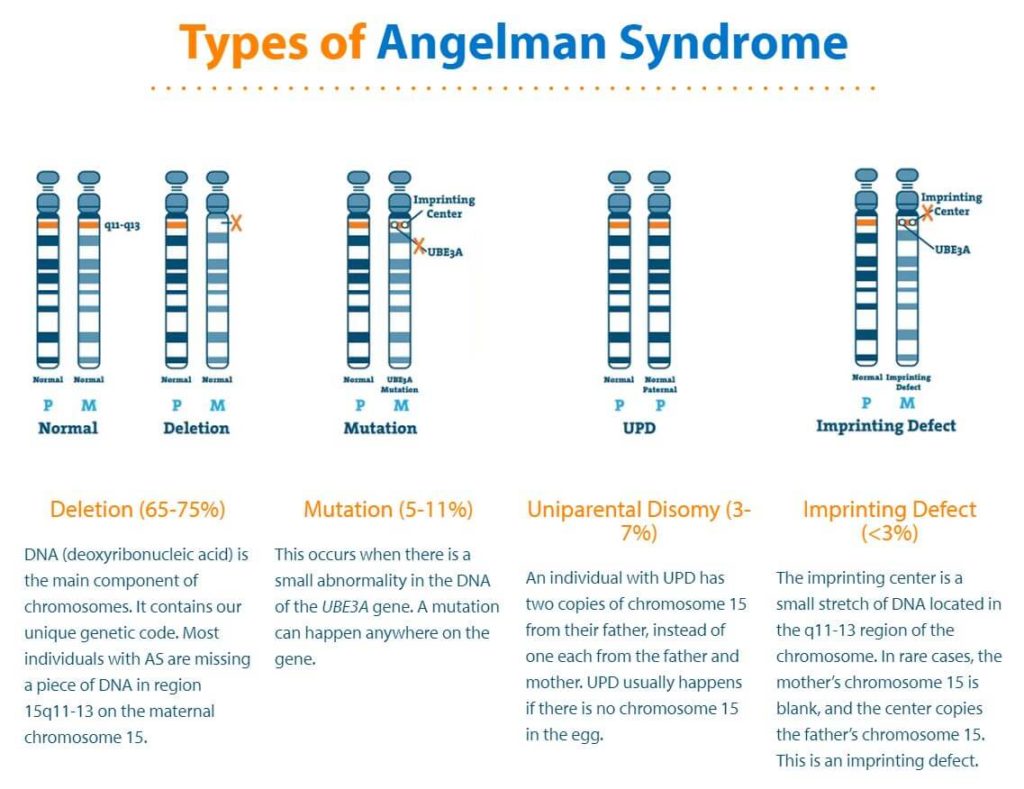
Our Goal | Challenge:
Angelman syndrome (AS) is a rare neurogenetic disorder that affects approximately one in 15,000 people – about 500,000 individuals worldwide. Symptoms typically include difficulty suckling and eating, gastrointestinal issues, delayed crawling and babbling, balance and motor impairment, and seizures. Angelman syndrome is a single-gene disorder caused by a loss of function in the UBE3A gene on the maternal 15th chromosome. People have two sets of chromosomes – one inherited from the mother and one from the father. In a typical person, the maternally inherited UBE3A gene is active, while the copy of the gene inherited from the father is silenced in the neurons in our brains – a phenomenon known as imprinting. For people with AS, this maternal gene is not doing its job, and that impacts their Messenger RNA (mRNA). Most people have never heard of Angelman syndrome (AS), but scientists believe that AS has the greatest potential for being cured when compared to other neurogenetic disorders.
In most cases, Angelman syndrome isn’t inherited – particularly those caused by a deletion or UPD. Instead, these genetic changes occur as random events during the formation of reproductive cells or in early embryonic development.
As diverse as our Angelman community is, we are all united in one goal: a better future for our children. FAST is committed to bringing life-changing treatments to clinical trials within two years, but we need your help.

